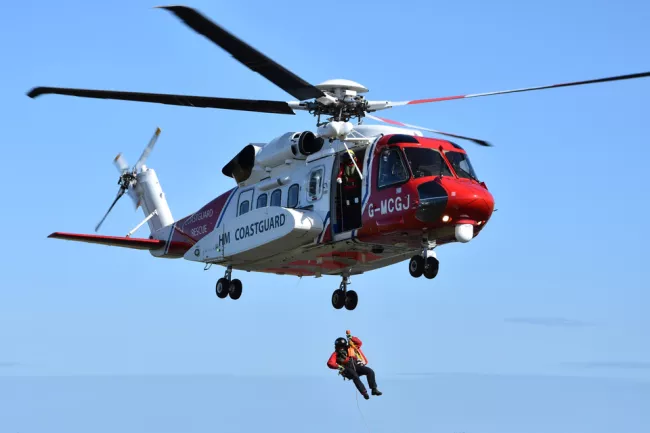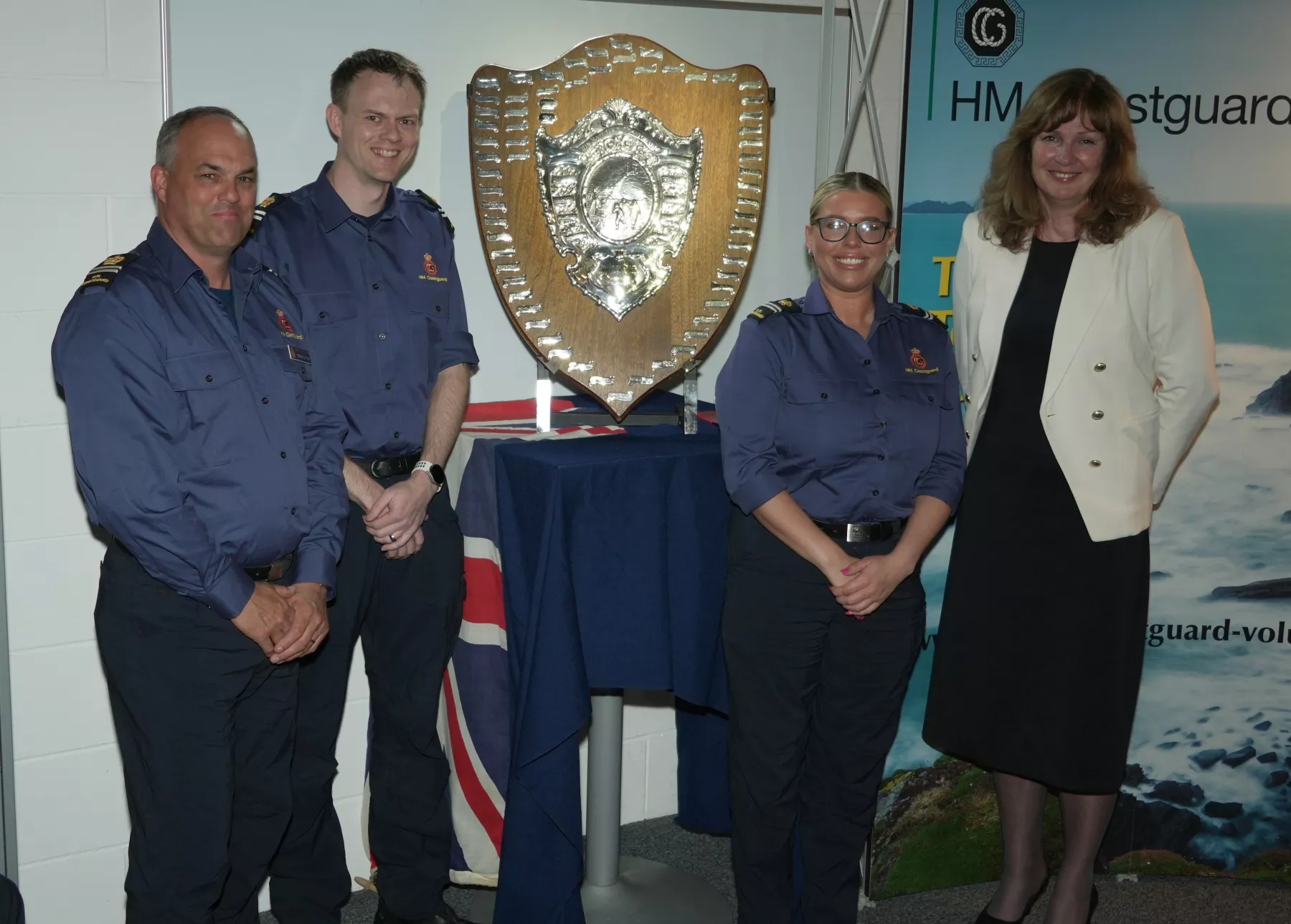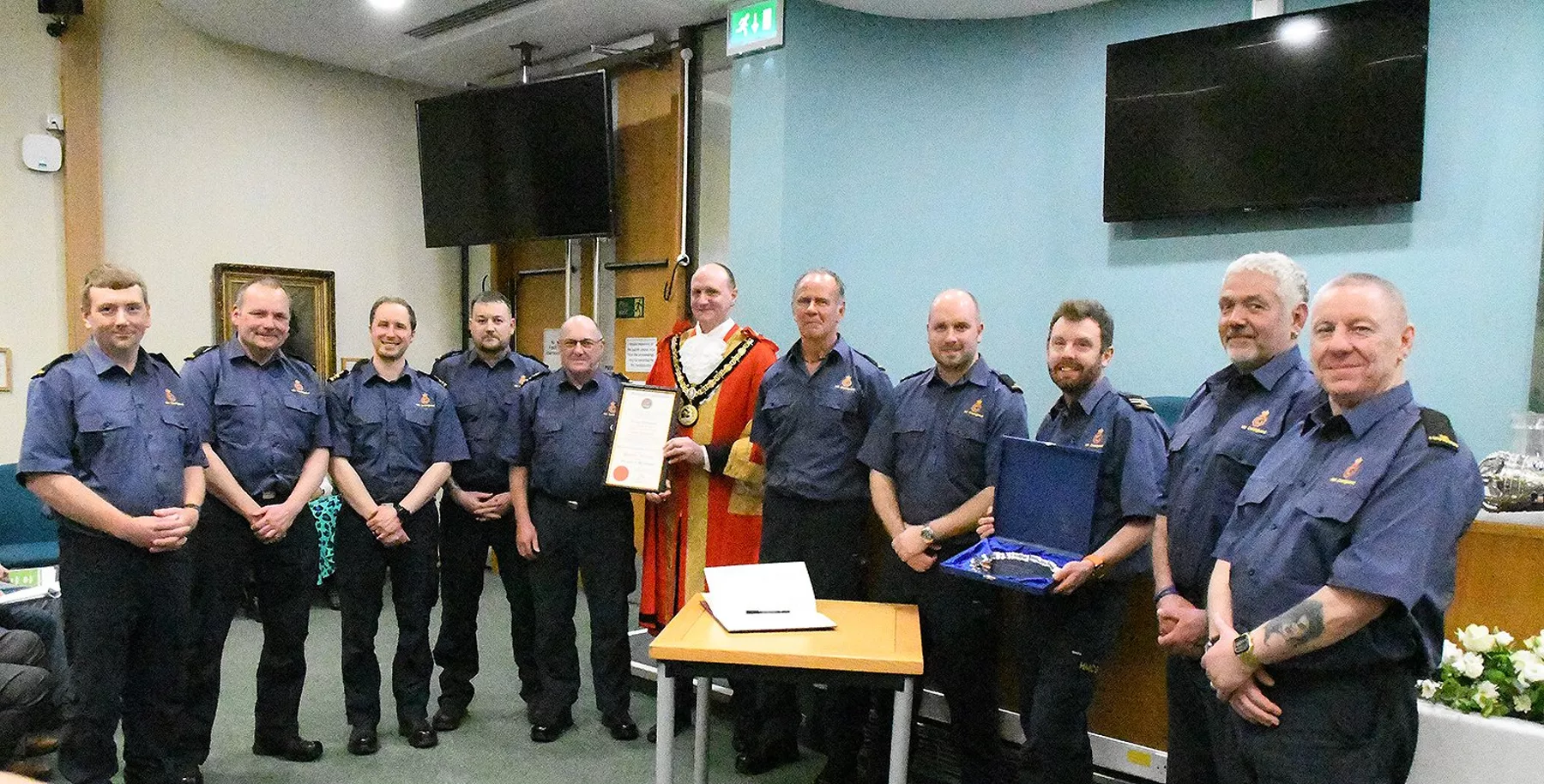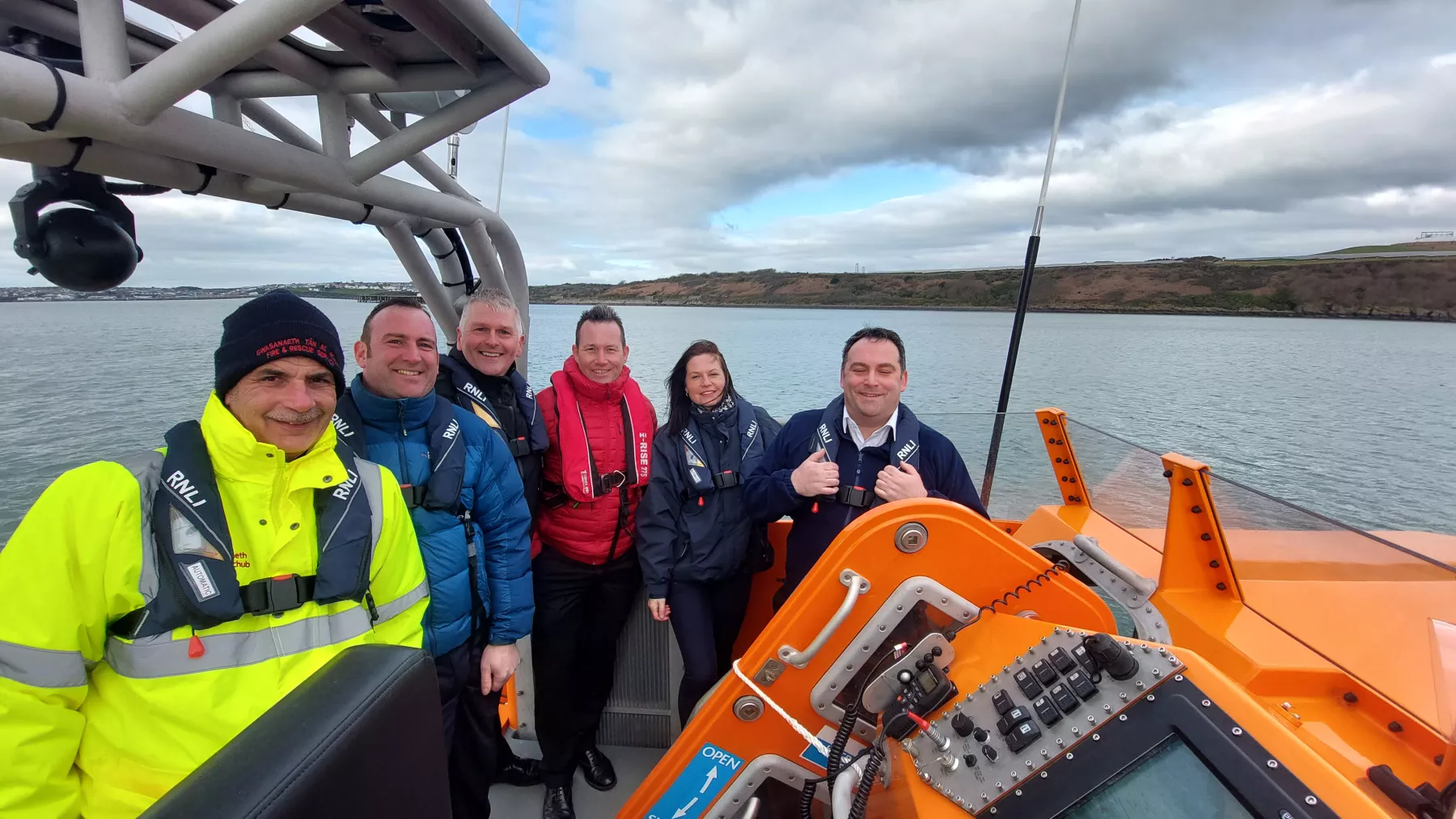It’s a mark of the risks he faces as the member of a four-strong crew whose job is to be winched out of the aircraft on the end of a thin, steel line to pluck people from danger or deliver lifesaving aid.
Mark (49) said: “It’s quite exhilarating, as you can imagine. You think about things a bit more deeply. Some of the situations you put yourself in are quite extreme.
“And it’s all from a place of loneliness as well; when you’re the only person on the scene that might be a horrible cliff rescue or a landing on a cruise ship with thousands of people on board. You’re in the orange flight suit and everyone is looking to you for the expertise.
“Teamwork is our main attribute. You’re living with these guys 24 hours on and off, and you get to be a very close community.”
Since 2007 Mark has been part of the HM Coastguard helicopter team, a fleet of about 20 Sikorsky and Leonardo aircraft operated by contractor Bristow Helicopters Ltd and stationed around the UK coastline. They make rescues at sea and on land as well as medical flights.
Mark’s career started in the Royal Navy, aged 16, as a weapons engineer submariner. He went on to become navy aircrew, and finally military search and rescue before joining civilian life.
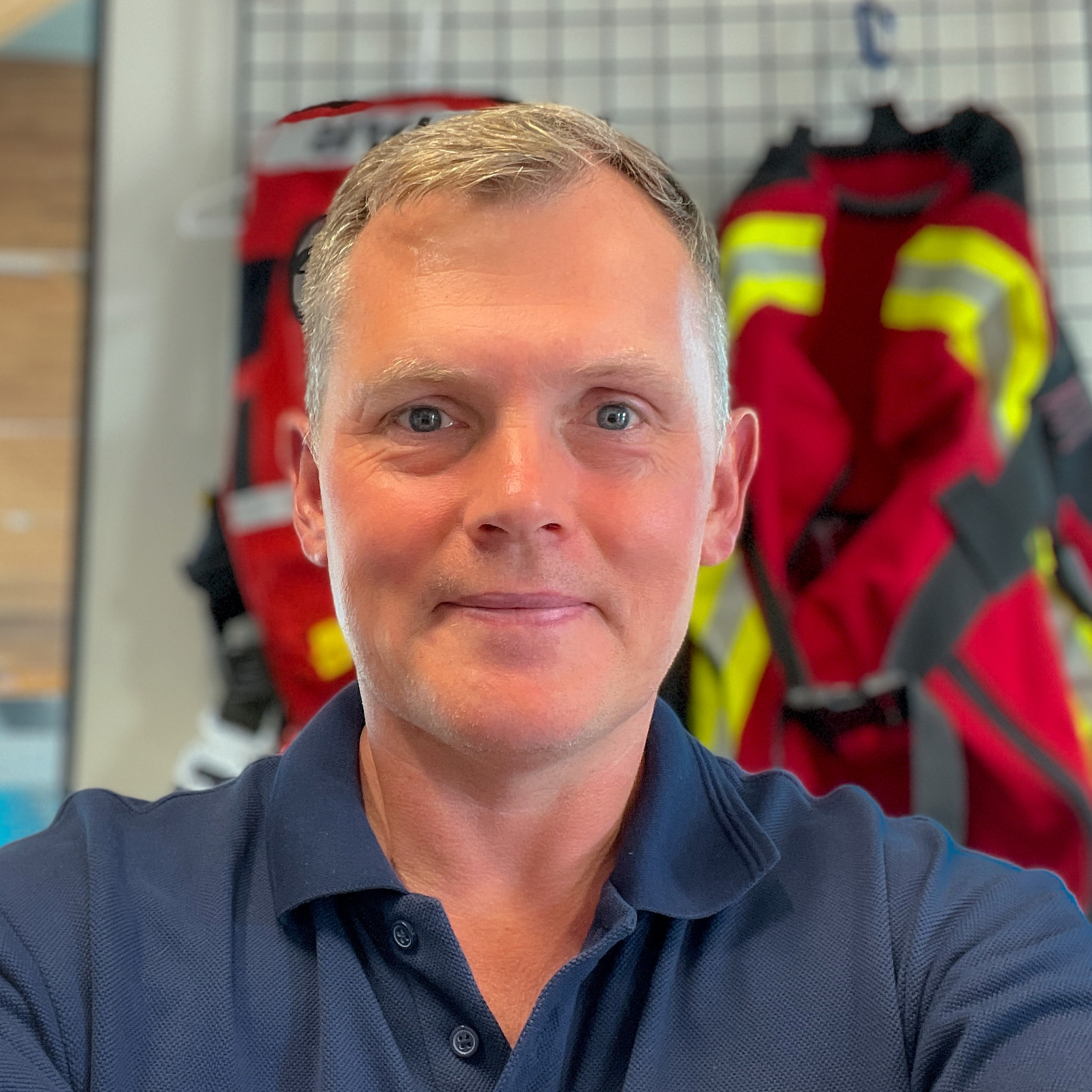
He now lives in a small town near Perth, in Scotland, but his job takes him to search and rescue bases around the UK, providing back-up and vital training.
One mission stays in his mind less for the drama and more for the responsibility that fell on his shoulders when, about three years ago, he was winched down to a vessel 80 miles off Shetland where a crew member was caught in fishing gear.
All eyes turned to him for decisions as the only medic and for the next five hours he managed the situation single-handed until help arrived.
“That’s it with search and rescue: you never know what you’re going to find,” he said.
It makes the relationship a vital one between the helicopter crew and HM Coastguard’s Joint Rescue Coordination Centre in Fareham.
Mark said: “We need accurate information from the team at the desk. It makes a massive difference, such as the equipment we take, whether it’s over the water or on a cliff edge. We need to have thorough but quick information.”
The four-person helicopter crew comprises two pilots, a winch operator and a winch paramedic, forming a tight team.
“It’s through experience,” explains Mark. “We all know what’s next; what to expect. Without expecting it, we know what’s coming, in a funny kind of way.”
But when the door opens the nerves never go away, Mark admits: “It’s still forever present and because you’re aware of it you’re more professional and not blasé about it.
“Anyone who says they take it in their stride is lying. Sometimes your leg can shake – I call it the disco leg. On mountain rescues there can be nothing below you for 2,000-3,000ft and if the winch wire snaps, you’re dead.”
It makes coming home to his wife, Julie (and dog Harris), a special comfort: “You come back and they’re your support – after everything you’ve been through, your home life still goes on.”
